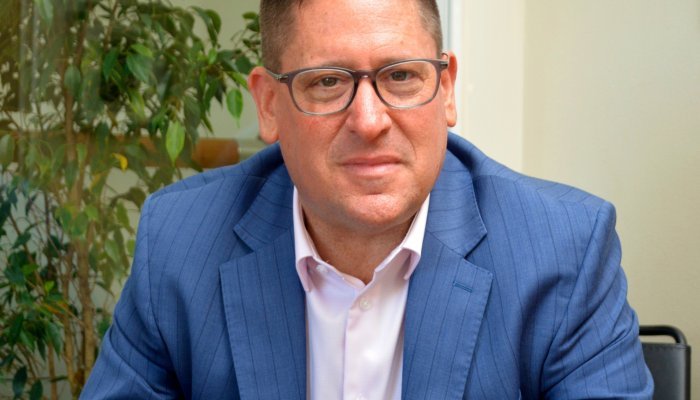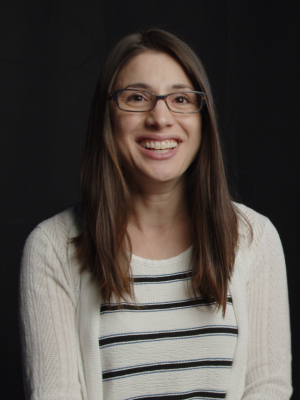Along with the perennial (and yet unanswered) question of whether entrepreneurs are born or made is the question of whether creating a start-up venture is an art or a science. It was this question that gave rise to the creation of the GIBS MBA Entrepreneurship Focus programme, a specialised focus area for MBA students. Could a programme be designed and implemented that provides a systematic, structured, and disciplined approach to launching a high-growth start-up venture that could lead to increased entrepreneurial activity among GIBS MBA graduates?
The motivation for the MBA Entrepreneurship Focus programme is three-fold. Firstly, it addresses the dire need in South Africa for more entrepreneurial activity. The Global Entrepreneurship Monitor (GEM) Report shows that South Africa languishes near the bottom of the log for total entrepreneurial activity among emerging economies.
There are myriad reasons for this, but principal among them is that there are simply not enough viable and scalable businesses being started in South Africa. Given the high failure rate among start-up ventures, a greater number of new ventures is needed to ensure that enough survive the brutal early years.
Secondly, the failure of the state to meet the basic needs of South Africans continues and social issues that should be addressed by government fall on the shoulders of entrepreneurs to solve (energy generation, for example). While this can be a challenge for entrepreneurs, state failure, often understood as institutional failure, leads to market opportunities that entrepreneurs can exploit. The growth in private education illustrates this opportunistic response from entrepreneurs.
Lastly, for GIBS, the creation of the Entrepreneurship Focus programme offers an important market differentiation and supports the demand from established companies to educate managers and leaders to be more entrepreneurial.
Focus on action
The MBA Entrepreneurship Focus is a departure from the traditional general management-focused MBA. Principal among the differences is a predilection for action – while entrepreneurship is a heavily researched domain, it is primarily an applied discipline. The Entrepreneurship Focus programme is therefore designed with this in mind, offering students a practical, applied, relevant, and action-oriented learning experience.
A Portfolio of Evidence replaces the traditional MBA research report, affording students a chance to showcase their learning and capabilities. Portfolio elements include a product prototype, investor pitch, and business plan. Students pay forward their MBA learning while also gaining direct insight into the challenges SMEs in South Africa face day-to-day by consulting to a small business.
Brendon Nash-Beresford, a consultant and student in the inaugural 2019 cohort, reflecting on the experience said: “The Entrepreneurship Focus provided a fantastic capstone to my MBA journey, emphasising the development of a resilient business model. I’ve seamlessly integrated this entrepreneurial mindset into my role as an employee, fostering innovative strategies for our business and redefining our approach to conquering new markets.”
To aid in reflective learning, students are required to keep a journal. This is one of the most powerful tools that can be used to make sense of the intensity of the MBA Entrepreneurship Focus programme and to make important links between the learning journey and a student’s life path. Koko Hlope, a graduate of the programme from eSwatini, wrote in her journal: “With every beautiful moment I have had on this journey, I have been acutely reminded of how none of my people have experienced the vastness and beauty of this life as I have. A reminder that has instilled in me a deep belief, throughout my MBA Entrepreneurial Journey, of how I represent an entire generation. A generation of those who came before me, those who made it possible for me to be here and a generation of those watching me and hoping for the same and more.”
The emphasis on learning by doing is supported by a continued exposure and access to entrepreneurs and practitioners in the broader South African and global entrepreneurial ecosystem. Over the 10 months of the MBA Entrepreneurship Focus, students engage with upwards of 30 guest speakers, investors, entrepreneurs, and industry specialists. Programme supervisors are largely drawn from the practitioner community and aside from academic support, offer mentorship and coaching to students.
Additionally, for the last three years, the Entrepreneurship Focus programme has had an entrepreneur-in-residence. Dov Girnun, the founder and CEO of Merchant Capital, has given his time, knowledge, and network to students and programme alumni to help build their ventures and entrepreneurial capabilities.
Along with the knowledge, skills, and capabilities that are developed through the programme, the greatest value may be that the course empowers students to follow their dreams and aspirations. Gareth Levinsohn, a final-year MBA student at GIBS, said: “The Entrepreneurship Focus is the single most empowering and through-provoking content of my MBA journey.” Londile Mazibuko, a current MBA student and founder of Lala Lulu, a children’s bed linen company, had this to say: “Often we have real fear and self-doubt, but the Entrepreneurship Focus has helped me to overcome my self-doubt and the wondering of what would have happened if I didn’t try. Me trying has been a real learning curve and has been an invaluable experience … entrepreneurship is not easy but I’m enjoying the ride!”
Is it working?
Five years after the launch of the MBA Entrepreneurship Focus, research into the efficacy of the programme structure and model has begun. As the programme impact is multifaceted and longitudinal in nature, many of the outcomes will only manifest over time. While it is gratifying to receive immediate positive feedback from students on the programme experience, what we are really focused on is driving greater entrepreneurial activity and seeing programme graduates address the many challenges faced in South Africa.
An analysis of business models from the programme thus far yielded interesting findings. Just over half of students focused their business ideas on addressing Sustainable Development Goals and pressing social issues in South Africa, with business models focused on sustainability, social impact, collaboration, and/or community. Students were heavily influenced by the desire to work with others to improve the environment in which they were born or currently live while ensuring the sustainability of those improvements in the future. This focus highlights how programme participants are recognising opportunities within the institutional failure in South Africa. Providing educational support for entrepreneurs creating sustainable business models is crucial for addressing social challenges, fostering economic growth, and promoting long-term sustainability in the country.
Our analysis also uncovered a noteworthy growth in entrepreneurial intention. Intention is a key and leading indicator for future entrepreneurial activity; it is widely accepted that the higher the level of personal intention, the more likely it will be that a behaviour change occurs.
Most entrepreneurial intention measures are cross-sectional, meaning they are measured at a single moment in time. Access to longitudinal data – measurements over an extended period – on intention is rare, yet the MBA Entrepreneurship Focus programme offers such an opportunity. We have been able to observe changes in intention during the ten-month period of the programme by analysing students’ Portfolios of Evidence, and been able to understand changes in intention that occur in the months and years post-programme via alumni interviews.
One of the constructs of entrepreneurial intention is perceived behavioural control, or the extent to which an individual believes they can control their own behaviour enough to achieve their desired outcomes. Cameron Naidoo, a recent programme graduate, had this to say when reflecting on his programme experience: “I reminded myself I don’t have to worry about the big picture every day; completing [the] MBA, owning a business, overseeing a big business unit, growing a start-up; but only make good decisions every day and take one step every day.”
Shifts in intention, while not planned for during the initial programme design, add valuable intermediate markers of programme success. Our analysis shows that we have influenced intention, and as that is a crucial leading indicator of future entrepreneurial activity, we hope to see a large-scale move into entrepreneurship from programme graduates in the future.
Changes?
As the MBA Entrepreneurship Focus programme enters its sixth year, a few changes are being considered, mostly notably the need to offer broader support for graduates to launch their ventures post-MBA. There is a growing entrepreneurial ecosystem in Johannesburg, and the GIBS programme needs to connect with this network of founders, investors, incubators, and accelerators to better support early-stage entrepreneurs in developing sustainable, scalable, and innovative business models that directly impact pressing social issues in South Africa.
In the final evaluation of programme success, new ventures launched will be the most valuable metric. However, there is undeniable value outside of this measure. As Don Cawdry, a 2022 graduate, said, “The MBA Entrepreneurship stream was the most impactful experience of the MBA journey. It altered my view of business and opportunities and set me on a different trajectory to believing and fulfilling a greater purpose with my life. South Africa needs what is taught on this stream.”
Our observations and interactions show that, in the end, the most positive outcomes for students are the result of both inspiration and perspiration, that entrepreneurs are both born and made, and that our work is as much art as it is science. Finding the balance between these extremes is what will mark the long-term success of the programme – for students, GIBS, and South Africa.
Professor Jonathan Marks is a full-time faculty member at GIBS specialising in the field of high-growth entrepreneurship and the intersects between start-ups and conscious capitalism. His research and consulting crosses a broad landscape from corporate venture capital to immigrant entrepreneurship and digital inclusion.
Dr. Aleia Bucci obtained her PhD at GIBS, focusing her doctoral research on understanding the ways social entrepreneurs learn while part of incubator programmes. Her ongoing research interests include social entrepreneurship, entrepreneurial learning, and entrepreneurship development programmes. Originally from the US, she has worked across the start-up, corporate, nonprofit, and academic sectors in multiple countries.







